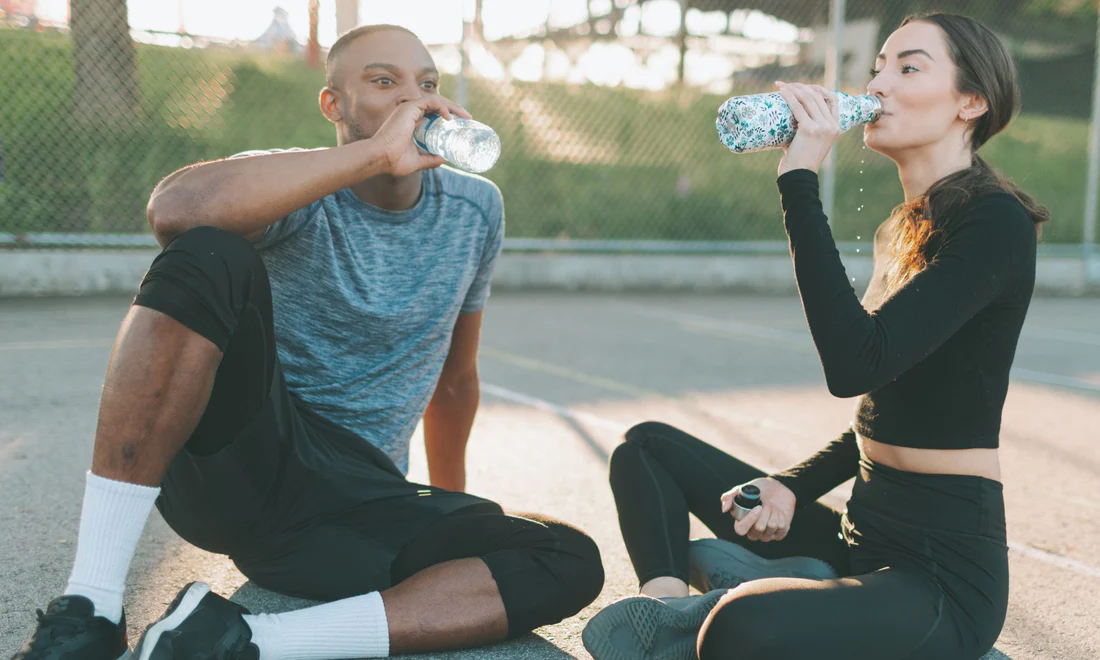How Staying Hydrated Affects Athletic Performance Staying properly hydrated supports bodily functions such as temperature regulation and joint lubrication while also significantly impacting athletic performance, endurance, and recovery.

Credits: Hydratis
Whether you are a professional athlete or simply enjoy regular exercise, understanding the role of hydration can help you perform optimally and minimize the risk of injury.
This article delves into how staying hydrated boosts athletic performance, the dangers associated with dehydration, and offers practical advice to ensure you get enough fluids before, during, and after exercise.
The Importance of Hydration for Athletes
How Staying Hydrated Affects Athletic Performance: Water comprises approximately 60% of the human body and is crucial for sustaining vital functions, particularly during physical activity.
Exercise causes your body to lose water through sweat; failing to replace these fluids can negatively impact both performance and health. Here’s why staying hydrated is essential:
Helps Maintain Body Temperature
One of sweating’s primary roles is to cool your body. During exercise, as your body produces heat, sweat helps regulate temperature.
However, this process also results in fluid loss which must be replenished to avoid dehydration.
Dehydration compromises the body’s ability to manage its temperature effectively, increasing the risk of overheating and conditions like heat exhaustion or even heatstroke.
Staying well-hydrated supports normal body temperature regulation, enabling you to exercise more comfortably and safely.
Boosts Endurance
Hydration is essential for endurance athletes such as runners, cyclists, and swimmers because they tend to sweat more during prolonged exercise sessions.
Insufficient water intake can impair energy production in the body, resulting in premature fatigue.
Proper hydration stabilizes blood volume, ensuring efficient delivery of oxygen and nutrients to active muscles.
This helps delay fatigue onset and allows athletes to sustain their endurance over longer durations.
Aids in Recovery
Effective post-exercise recovery is crucial for athletes, with hydration being a key component.
Following a workout, water intake helps repair muscles, replenish nutrients, and eliminate toxins generated during physical exertion.
Proper hydration speeds up the recovery process, alleviates muscle soreness, and primes your body for upcoming training sessions.
The Risks of Dehydration for Athletes
Dehydration happens when your body loses more fluids than it ingests, leading to a fluid imbalance that can severely impact athletic performance and overall health.
Here are some potential risks linked to dehydration:
Reduced Physical Performance
As previously noted, even slight dehydration can diminish muscle strength, coordination, and endurance. When your body lacks sufficient fluids to function optimally, your performance suffers.
You may find it more challenging to complete your regular workout routine or maintain the usual level of intensity.
Impaired Heat Regulation
Dehydration hampers your body’s ability to manage temperature, increasing the risk of heat-related illnesses such as heat exhaustion and heatstroke.
This danger is elevated in hot and humid environments where sweating is more pronounced, making dehydration more likely.
Slower Recovery Times
Insufficient hydration can hinder your recovery process.
When you don’t consume enough fluids, your body has difficulty delivering nutrients to your muscles, resulting in extended soreness and delayed recuperation following exercise.
The Optimal Amount of Water Intake for Athletes
The amount of water you need varies based on several factors, such as your activity level, the intensity of your workouts, the climate you’re in, and your body size.
Here are some general recommendations for staying hydrated:
Before Exercise
It’s crucial to begin your workout fully hydrated.
To achieve this, consume 16-20 ounces of water two hours prior to exercising so that your body is adequately hydrated.
Then, approximately 20-30 minutes before you start, drink an additional 8 ounces to replenish your fluids further.
During Exercise
While engaging in physical activity, try to drink 7-10 ounces of water every 10-20 minutes.
If your workout extends beyond an hour or occurs in hot weather, think about consuming a sports drink with electrolytes such as sodium, potassium, and magnesium to replace the minerals lost through sweat.
After Exercise
After exercising, it’s crucial to replace the fluids you’ve lost.
A helpful guideline is to drink 16-24 ounces of water for each pound of body weight shed during your workout.
If you’re uncertain about how much fluid you’ve lost, an easy method is to weigh yourself before and after your exercise session. Rehydrate slowly over the next few hours to aid in recovery.
Tips on How Staying Hydrated Affects Athletic Performance
Drink Regularly Throughout the Day
Don’t wait until you’re thirsty to drink water, as thirst is a late indicator of dehydration. Make it a habit to drink water regularly throughout the day.
Carrying a water bottle with you can serve as a reminder to stay hydrated, especially if you lead an active lifestyle.
Monitor Urine Color
One straightforward method to assess your hydration level is by observing the color of your urine.
Generally, pale yellow urine suggests that you are well-hydrated, whereas darker urine may indicate a need for more water intake.
Adjust for Weather and Intensity
Hot weather and intense workouts boost sweat production, making it essential to intake more fluids. Ensure you drink additional water under these conditions to prevent dehydration.
Conclusion
Maintaining proper hydration is essential for both athletic performance and overall health.
Adequate fluid intake aids in regulating body temperature, supporting muscle function, enhancing endurance, improving cognitive abilities, and speeding up recovery times.
Whether you’re engaging in intense workouts or a leisurely jog, staying hydrated before, during, and after exercise can significantly boost your performance while minimizing the risk of injury.
By developing mindful hydration practices and being attentive to your body’s requirements you can achieve peak condition irrespective of the sport or activity you engage in.










